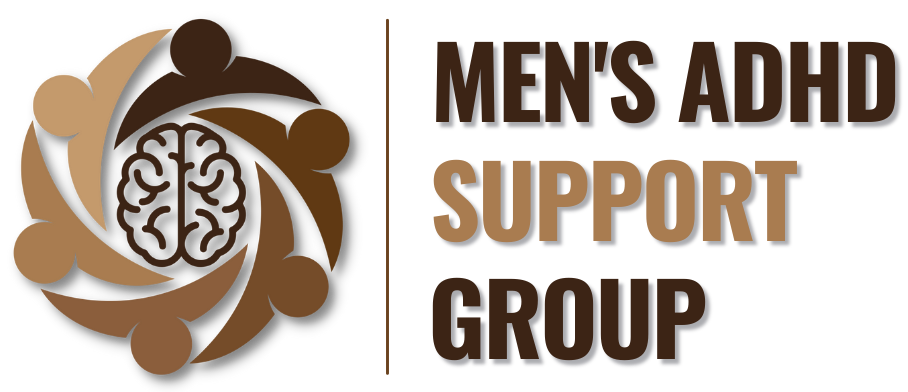ADHD Doesn’t Define You: Understanding Imposter Syndrome
There’s a struggle that you may feel. As if everything is wrong in your life, that you are not as successful as you should be, as if you are not worthy of being cared about. You’re not alone. This feeling, known as Imposter Syndrome, makes you question your worth, success levels, and abilities—and many people with ADHD experience this, especially children. During childhood, when we start to understand who we are, feeling different from others can distort our self-image. The problem continues into adulthood, especially if we aren't aware that we have ADHD. To rewrite this narrative of self-doubt, we must delve into the complexities of ADHD and understand the strategies that can help us thrive. Let's explore the roots of Imposter Syndrome in boys and men with ADHD and discuss the science-based solutions to overcoming this challenge.
Our childhood actively shapes our self-concept. The environment we live in, our parents, and our struggles are especially difficult for neurodivergent children, such as those with ADHD or Autism. Our neurodevelopmental growth and social understanding often trail their peers by about 1.5 to 2 years. Society, unfortunately, overlooks these intricacies and holds onto outdated, unrealistic expectations, thrusting children into educational and social environments where we feel inadequate or estranged. This misalignment amplifies our outsider feelings and distorts our self-perception, casting a skewed reflection of our identity in our inner mirror.
Unfortunately, parents and teachers may unintentionally harm children through their lack of understanding about neurodivergence. Renowned ADHD expert Dr. Ned Hallowell highlights this issue in his book, "The Childhood Roots of Adult Happiness." He reveals that by age 10, a child with ADHD endures approximately 20,000 more negative comments than a child without ADHD. This study further explores how such negative feedback can erode our self-esteem and exacerbate ADHD symptoms. As a result, we may start feeling like imposters in our lives, fostering enduring self-doubt. It’s not just this ignorance; we also live in a neurotypical society that honestly doesn’t consider neurodiversity regarding parenting, education, and our workforce.
Because this struggle of ours doesn't end in childhood, for people with untreated and undiagnosed ADHD, the sense of being an imposter can worsen with age. From our work to being in toxic relationships to societal pressures that do not align with who we are, we find ourselves constantly questioning ourselves. However, we can change this by recognizing these challenges as the first step to acceptance and self-understanding. As adults, it's essential to get an accurate diagnosis from a psychiatrist to identify ADHD and any coexisting conditions, such as PTSD. This information is crucial for securing work accommodations and deciding on the treatment and possible medication.
After an accurate diagnosis, professional help is essential for making emotional and lifestyle changes. Cognitive-Behavioral Therapy (CBT) with an ADHD-informed therapist can be beneficial. According to a 2010 study published in the Journal of Attention Disorders, CBT can significantly improve self-esteem and reduce symptoms of depression and anxiety in adults with ADHD. It helps individuals understand their thoughts and feelings and teaches them strategies to manage stress and frustration. Working with a trauma-informed specialist is also important because through all of this struggle from childhood to adulthood often develops serious issues.
An ADHD coach can provide another layer of support. In this article, CHADD discusses how ADHD coaching improves executive functioning and quality of life in adults with ADHD. Coaches work with individuals to develop strategies for managing their symptoms, improving communication, and setting realistic goals. This support can lead to building an accountability system that can genuinely help people with ADHD move forward with their goals. From lifestyle changes to recognizing harmful habits to creating a structured framework for day-to-day life, coaches can be a vital resource for people on their journey with ADHD.
Building a robust support network is equally critical. Friends, family, or support groups like the Men's ADHD Support Group can provide much-needed understanding and acceptance. Sharing experiences in such supportive communities can bring about a sense of belonging, encourage self-acceptance, and provide practical solutions to shared challenges. This peer-to-peer support system can help us learn how to communicate our struggles and strengths and have a place to turn to when we feel ourselves falling back into old habits.
Imposter Syndrome can feel daunting, but it's not a life sentence. It's possible to change the narrative of self-doubt with time, effort, and self-compassion working with trained professionals. The challenges faced by Imposter Syndrome are not only about the symptoms of ADHD or neurodivergence but are also related to societal pressures and mental health stigma. The goal is not merely to survive but to thrive. By staying mindful and asking for help, you can beat Imposter Syndrome.
Remember, being neurodivergent does not define you. It contributes to who you are and the unique strengths you possess. As men with neurodivergence, it's time to recognize our worth, stand tall against the critics, and redefine what it means to navigate life with ADHD. By focusing on our strengths rather than perceived inadequacies, we can transform our journey into a celebration rather than dismay. While these challenges may sometimes hinder us, let's actively remind ourselves: We journey together, never alone.
Shane Thrapp is a Certified ADHD Life, Relationship, and Career Coach.
Through his business, Creating Order From Chaos, he has helped hundreds of people find their paths through the chaos of life with ADHD and find their order and purpose.
He is also the Operations Director for our nonprofit Men’s ADHD Support Group, a board member for the Inattentive ADHD Coalition, and a public speaker who works to be a voice in advocacy for adult ADHD awareness.
If you want to help support our efforts, then please consider donating or volunteering so that we can keep Inspiring, Educating, and Empowering men to thrive with their ADHD.

